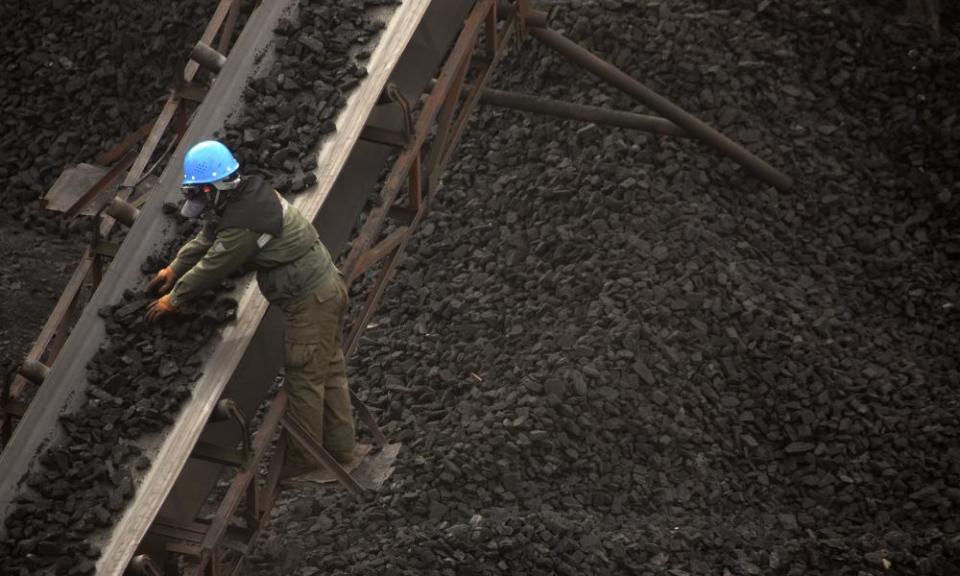Global banks reduce lending to dirtiest fossil fuel companies by billions in 2016

The world’s biggest banks have reduced their lending to some of the most carbon-intensive sectors of the fossil fuel industry by billions of dollars, marking a potentially seismic shift against coal investment, a new study says.
The report commissioned by environmental groups tracked the lending decisions of 37 banks across Australia, the US, Europe, Canada, China and Japan in the first calendar year since the signing of the Paris climate agreement.
It shows the world’s largest banks – including Commonwealth Bank, Westpac, ANZ, and NAB – lent a collective $87bn to companies involved in the extraction, processing, and burning of “extreme fossil fuels” in 2016.
The $87bn figure marks a sharp decline from bank funding for extreme fossil fuel companies in 2015 ($111bn) – representing a 22% drop – and is also lower than 2014 ($92bn).
The report, entitled Banking on Climate Change: Fossil Fuel Finance Report Card 2017, defines extreme fossil fuels as: oil (tar sands, Arctic drilling, and ultra-deepwater oil), coal mining, coal-fired power, and liquefied natural gas (LNG) export terminals.
However, the report warns that despite the 22% decline in funding, banks are still funding fossil fuel projects at a rate that will push the world beyond the 1.5 degrees climate change limit determined by the Paris Climate Agreement.
It says they have still contributed $290bn of direct and indirect financing for extreme fossil fuel projects over the last three years, representing new investment “in the exact sub-sectors whose expansion is most at odds with reaching climate targets, respecting human rights, and preserving ecosystems.”
“While this steep drop in funding is encouraging, it is vital that this be not just a temporary decline, but the start of a rapid phaseout,” the report says.
“Meeting the Paris Agreement’s target of staying well under a 2° celsius increase in global temperature — while aiming for no more than 1.5° of change — requires a complete halt to all financing of new extreme fossil fuel extraction and infrastructure.”
The report was commissioned by BankTrack, Rainforest Action Network, Sierra Club and Oil Change International, in partnership with 28 organisations around the world.
It is the eighth edition of this fossil fuel finance report card that ranks bank policies and practices related to financing of major fossil fuel projects.
It shows the two biggest funders of extreme fossil fuels in the last three years have been the Bank of China ($22.1bn) and the China Construction Bank ($21bn).
The biggest Wall Street funder was JPMorgan Chase ($20bn), which came third.
“In 2016 alone they poured $6.9bn into the dirtiest fossil fuels on the planet,” Lindsey Allen, the executive director of Rainforest Action Network, said.
“On Wall Street they are number one in tar sands oil, Arctic oil, ultra-deepwater oil, coal power and LNG export.
“Even in this bellwether year when overall funding has declined, Chase is funnelling more and more cash into extreme fossil fuels. For a company that issues statements in favour of the Paris Climate Accord, they are failing to meet their publicly stated ambitions.”
The report shows Commonwealth Bank has lent the most of Australia’s big four banks to extreme fossil fuels projects over the last three years.
Since 2014, the CBA has lent $1.23bn, followed by ANZ ($796m), Westpac ($514m), and NAB ($335m), according to the report.

 Yahoo News
Yahoo News 